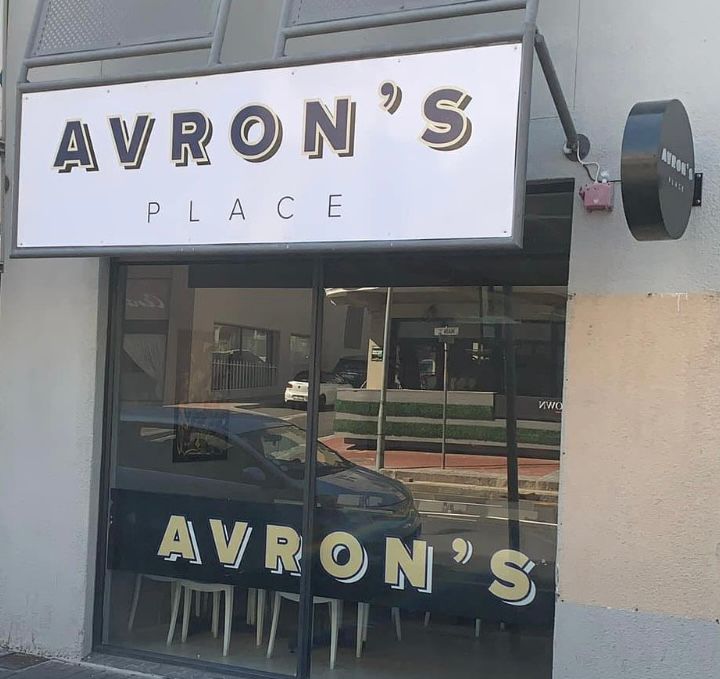
Banner

UOS warning about Cape diner causes uproar
When Kosher SA, the kashrut department of the Union of Orthodox Synagogues (UOS), announced on 28 July that Avron’s Place, an iconic kosher restaurant in Sea Point, would no longer be kosher as of 31 July, the local and international Jewish community were shocked.
After demands from the community for greater transparency, Kosher SA released a statement saying that the restaurant had been unable to pay mashgichim (kashrut supervisors), and that the Beth Din had assisted it by paying for the mashgichim at its own cost.
The statement angered many, who claimed that it shamed the restaurant’s owner, Avron Almeleh. It caused an uproar on social media and beyond, resulting in a crowdfunding endeavour for Avron’s Place.
The community was up in arms because Avron’s is an iconic kosher institution, having been operating since 1999, and for many years being the only fleishik (meat) restaurant in the Mother City.
Many claimed Kosher SA’s release was “airing our dirty laundry”, “shaming”, and “lashon hara” (negative or harmful speech). However, Rabbi Matthew Liebenberg, a dayan of the Cape Town Beth Din, told the SA Jewish Report that “in certain instances, Jewish law requires the sharing of negative information. In this case, there were numerous reasons why the information had to be shared and these are set out in a comprehensive Hebrew halachic ruling drawn up by dayanim on the Cape Town Beth Din.”
Granting kosher certification and allowing production and trade in kosher food is a matter in the public domain, he said. So, when certification is granted, it means that the halachic authority of the Beth Din is broadcasting to the public that an establishment is kosher. “The credibility and authority of the kosher administration is based on the trust of the community,” Liebenberg said.
This means that any establishment certified kosher knows that the kashrut administration has the right to let the community know about any changes or cancellations of this certification, the dayan said.
Consequently, if there has been a breach in kashrut laws, the public must be informed immediately, and this is commonplace. “The kashrut administration must state the reason for the suspension in the interests of transparency so as to maintain its integrity in the eyes of the community,” continued Liebenberg.
“In this case, the proprietor of the business was also given ample opportunity to send a communication in his own words to explain why his certification was going to be suspended. He was informed that if he failed to do so, Kosher SA would send its own communication.
“When the deadline arrived, no communication was forthcoming, and Kosher SA was then required to inform the community of the suspension of the certification and the reason thereto in the most transparent manner,” said Liebenberg.
The UOS statement, written by UOS Cape Town Executive Director Joel Merris, explained that the organisation was ultimately stuck “between a rock and a hard place” as the establishment was unable to pay the UOS for the service of mashgichim, which it deploys to kosher restaurants. While the UOS employs the mashgichim, the restaurants reimburses the UOS for this cost. Having mashgichim is crucial for a restaurant to be certified kosher.
“A kosher food service cannot run without the services of a mashgiach,” said Merris. “We have been assisting Avron’s Place over this period by supplying mashgichim at our cost. This is way beyond the mandate of the UOS Cape Town, and places us in a very difficult financial position as an NPO [non-profit organisation] and a communal organisation.”
He said that if the restaurant were to reimburse the UOS for the service of mashgichim, “we would be able once again to certify its kashrut”.
Merris explained that the statement was released “for the sole intent and purposes of transparency on all matters of kashrut in the community”.
The response to the statement was swift and angry, with many messages of support for the establishment and emphasis that Almeleh had gone above and beyond in serving the community.
Others suggested that there were alternate ways of dealing with this issue. “It’s unfathomable to me that in a diminishing community with few kosher restaurant options that a more tasteful and sustainable solution couldn’t have been thought up. We’re a people committed to welfare and assistance. In such a vein, I hope that members of our community were approached to mentor or sponsor or open a line of credit for a business in need. We’re only as strong as our weakest link,” wrote one community member.
Others considered the UOS perspective. “People ask for transparency but complain when transparency is shown,” pointed out another community member. “The mashgichim are always the ones who have to fight for pay, benefits, job security, and many other things afforded to regular staff. If there’s no pay, there are no employees. I guarantee that this was a long time coming, and everything was done to rectify [the situation.]”
Though the UOS hopes to get “more people eating kosher more often”, kosher restaurants have been hit hard by loadshedding, the pandemic, rising food prices, kosher costs, and fierce competition. Though some restaurants have adapted, others have battled.
The outpouring of communal goodwill resulted in Rabbi Hillel Bernstein of the Milnerton Hebrew Congregation in Cape Town starting a BackaBuddy crowdfunding page for Avron’s Place on 30 July.
Speaking to the SA Jewish Report, Bernstein said, “When the ruling came out, I was asked as a rabbi to discuss the situation. I was quite worried because I didn’t want to be involved in any negative conversations and statements.
“My wife suggested that it was actually an opportunity to turn it into something positive and use it as an opportunity to fundraise. I was excited about that, took it to the committee of my shul, and it was very encouraging. It was set up and that night, we sent it out and I was overwhelmed at the response. Baruch Hashem!”
As donations poured in, so did messages of support and gratitude for Almeleh’s service to the community. “Thank you for all your dedication over the years and to your pioneering kashrut in Cape Town. Please G-d, this is just the beginning!” wrote Rabbi Nissen and Ariella Goldman of Chabad on Campus Cape Town. Many donations came in from beyond the Mother City. By 2 August, the campaign had raised R94 535.78, with its goal being R500 000.
“I was happy that something positive could come out of the situation, because tzedakah is the greatest merit that the Jewish people can have,” said Bernstein. “And, please G-d, all the wonderful generosity should be a merit, and Hashem should bless our community.”
The SA Jewish Report repeatedly reached out to Almeleh, but he chose not to comment.
The Cape South African Jewish Board of Deputies and the United Jewish Campaign met representatives of the UOS and Avron’s Place on 2 August to discuss the situation. A joint statement will be released in due course, according to the Cape Board.










